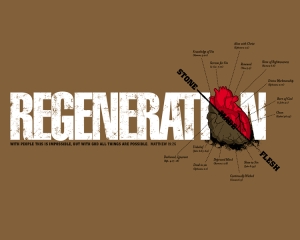 Freedom is one of the most-prized human ideals, and as Americans, we are blessed to live in a nation where we can serve God with unreserved obedience. Throughout our great history, people have fought and given their lives to be liberated from tyranny. We know that the rights and privileges we enjoy today have come at an awesome price.
Freedom is one of the most-prized human ideals, and as Americans, we are blessed to live in a nation where we can serve God with unreserved obedience. Throughout our great history, people have fought and given their lives to be liberated from tyranny. We know that the rights and privileges we enjoy today have come at an awesome price.
So as we consider the price our Founding Fathers paid to sign the Declaration of Independence and provide us with national autonomy so many years later, I challenge you to consider both the freedom from oppression we enjoy in the United States, and the liberty from sin we have through Jesus Christ our Savior.
These are important subjects to consider because as our nation faces one crisis after another, we must be wise and watchful. The decisions being made and the direction the country will take in the months and years ahead are sure to impact many generations to come. If we continue to make the mistake of surrendering control of our lives and country to those who act contrary to God’s Word, we will find ourselves bound by the same chains our forefathers cast off so long ago.
That is why it is critically important for all Americans to seek and obey God, because it’s only through Him that we have true liberty to live life at its best.
Therefore, the first thing we need to do is make the choice to put the Lord first in everything we do. We must reject the destructive ways of the world and choose to live in submission to our heavenly Father (John 8:34–36).
Second, we must trust God to change the course and character of our nation. We are to be salt and light in our communities, stepping out in obedience with the faith that He will hear from heaven and heal our land (2 Chron. 7:14).
Third, we are to fight this battle for America’s future on our knees. It is our duty as Christians to pray for our leaders in the hope that they will turn their hearts to do the will of God. Only He can transform them into men and women who will truly honor Him (1 Tim. 2:1–4).
We may not know who the next president will be or who will hold the seats of power throughout the land in the years to come, but we do know the King of kings and the Lord of lords. So let us embrace the freedom He’s given us and thank Him for liberating us to live for His name’s sake. May He bless you as you continue to serve Him with love and faithfulness, and may God continue to bless America.


 Matthew 13:47–50
Matthew 13:47–50






 Matthew 13:12–17
Matthew 13:12–17
You must be logged in to post a comment.